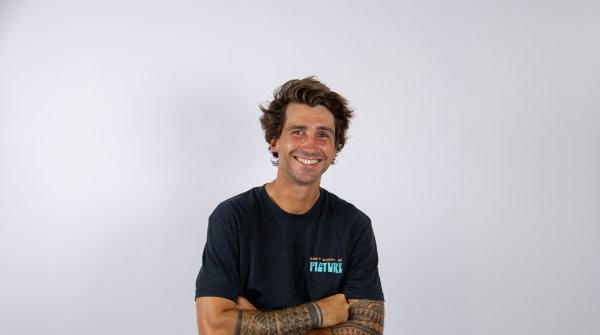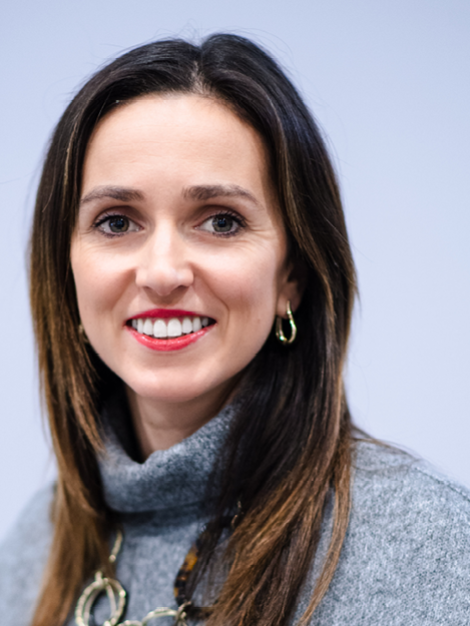22.05.2024 update: Emma (Mason) Zwiebler takes over CEO position permanently
With effect from 01.05.2024, Emma (Mason) Zwiebler has been appointed CEO of the WFSGI, after successfully serving as interim CEO since 01.11.2023.
Her priorities for the near future are the implementation of the WHO Memorandum of Understanding on Physical Activity, the continuation of the partnership with the Olympic Committee and the Road to Paris pilot project.
When I joined the World Federation of the Sporting Goods Industry (WFSGI) six years ago, the World Health Organisation (WHO) had just released the following data: 28% of all adults around the globe and 81% of adolescents are inactive i.e. they do not do enough physical activity to maintain good health. Around the same time, WHO published the Global Action Plan on Physical Activity (GAPPA), a road map for how countries can tackle this inactivity trend, and I’m very happy that WFSGI agreed on a Memorandum of Understanding (MOU) in 2023, to support their mission.
The two main focuses of WFSGI are: How do we help the world to become more healthy and more active, whether through physical activity or sport? And, how do we support the industry to reduce our impact on the planet?
The WFSGI has been advocating for increased physical activity for about 15 years, so long before I joined the federation. Unfortunately, inactivity levels have continued to increase around the globe during that time, so we’ve made the topic a key pillar of our Strategic Plan 2025. Physical inactivity is an issue that is too big for a government alone to resolve. It’s too big for one of our brands to resolve. Or even for the whole industry. We must work together as industry, across industries, and with other key stakeholders to elevate levels of physical activity and combat lack of exercise. As the new interim CEO at WFSGI I feel that I’m not only having an organizational responsibility but also a personal responsibility to drive this topic and deliver meaningful impact. We have to come together to change global behaviour on mass. What a challenge! But, also, what an opportunity.
If inactivity levels stay as they are by 2030, 500 million more people will be falling into ill health. At a cost of 300 billion US dollars to global public health systems.
The impact on global public health is clear. From an industry standpoint, that means 500 million people who are less likely to do sports and of course who won’t consume our products. And those 300 billion US dollars that are taken out of the system to treat these people means 300 billion US dollars less to invest in solutions to fix the problem in the first place such as increasing access to sport and physical activity and increasing levels of quality physical education.
It’s a negative spiral: The more ill people, the more money comes out of the healthcare budget to spend on treatment and the less money is available to invest in health prevention and promotion via sports and physical activity.
Physical activity is often overlooked at a policy level and messaging about the importance of moving more often regularly fails to resonate with those who need it most. To me, personally, it feels like we need a real moment like sustainability had when Greta Thunberg started the Fridays for Future movement. We need something that makes people sit back and recognize the shocking numbers above and understand the risk it poses to a sustainable future and the impact on future generations in terms of public health. The more ill people we have, the more vulnerable they are to the impact of climate change. We are currently in a negative feedback cycle and we must collectively do more now to protect the next generation and provide them with greater opportunities to be active – that is combating lack of exercise.
I don’t know exactly what that moment is yet. However, I am certain that we need to continue raising our voice and spreading awareness of the importance of addressing physical inactivity. And we believe that we, together with our members, can play a strong role in supporting the work that WHO is doing on physical activity.
That’s why we were so delighted to sign the MOU with the WHO, the first time it has signed such an agreement with a business association solely in relation to physical activity and sport. Our MOU with WHO defines a number of areas that we will work together on. One is to use the WFSGI platform to project the message more broadly and combat lack of exercise. Another is to better articulate and advocate for what the industry is already doing to elevate levels of physical inactivity.
It’s clear that our industry does not just invest in sports marketing but also invests significantly in getting more people to be active whether via product innovation, programmes, research, or communications. With these measures, we want to target physical inactivity and raise awareness of the importance of sport for health among politicians, governments and other key stakeholders - by spreading the message that we need to work together to tackle this problem.
You can find detailed insights in our lately published McKinsey report on “Sporting Goods 2024”: The development of inactivity levels, actual stats from WHO and the impact on the industry are included there together with our key trends for the industry to be aware of in 2024.
Leading WFSGI is a huge privilege, as we have a real opportunity to drive positive change via our Strategic Plan and priorities. It’s my first CEO position. That’s very empowering, energizing, and humbling all at once. Although I’m right at the start of my tenure, my view on how successful my role will have been at the end of it will hinge a lot on how we have managed to move forward on inactivity levels. I don’t want to leave this role, whenever that will be, and feel like we had an opportunity to work collectively on changing the direction and the narratives we have around physical inactivity levels. But we didn’t do enough or could have pushed harder.
I believe that trade associations can play an important role as they form a powerful collective force of the biggest companies in their industry and can drive tangible impact for companies and society. To work at the centre of such a platform is the most exciting opportunity I’ve had in my career.

 Sports Business"This is not a shoe, this is state-of-the-art!"
Sports Business"This is not a shoe, this is state-of-the-art!"
- Awards
- Mountain sports
- Bike
- Fitness
- Health
- ISPO Munich
- Running
- Brands
- Sustainability
- Olympia
- OutDoor
- Promotion
- Sports Business
- Textrends
- Triathlon
- Water sports
- Winter sports
- eSports
- SportsTech
- OutDoor by ISPO
- Heroes
- Transformation
- Sport Fashion
- Urban Culture
- Challenges of a CEO
- Trade fairs
- Sports
- Find the Balance
- Product reviews
- Newsletter Exclusive Area
- Magazine






